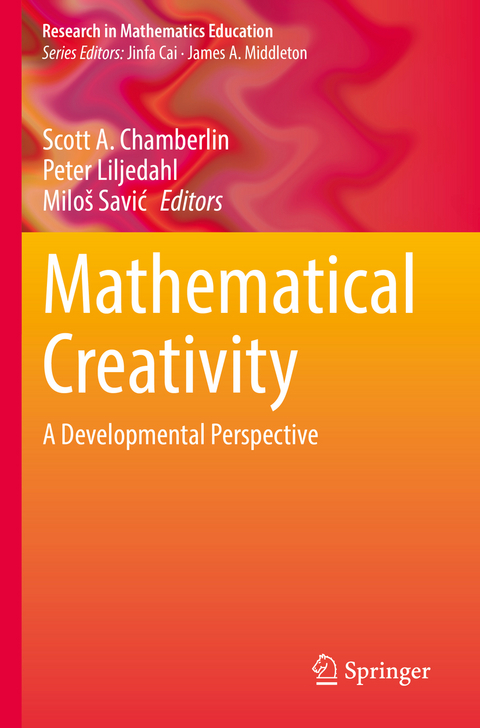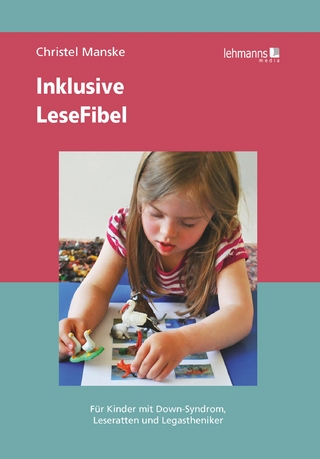
Mathematical Creativity
Springer International Publishing (Verlag)
978-3-031-14476-9 (ISBN)
Many books provide the former (2) foci, but omit the final discussion of the research in relation to developmental needs of learners in the domain of mathematics. Currently, educators are expected to implement best practices and illustrate how their adopted approaches are supported by research. The authors and editors of this book have invested significant effort in merging theory with practice to further this field and develop it for future generations of mathematics learners, teachers and researchers.
Scott A. Chamberlin is a mathematics and gifted educator and professor at the University of Wyoming. Having completed his Ph. D. at Purdue University, he invests research and scholarly efforts in student affect and creativity in mathematical problem solving episodes. Of particular importance to him is mathematical modeling given early efforts in his career with Drs. Richard Lesh and Judy Zawojewski. Scott's most recent book (scheduled to be released in January 2021) pertains to the Five Legs Theory of Creativity in which he and colleague Eric Mann (Hope College) have devoted considerable time in explicating the relationship between mathematical creativity and mathematical affect.
Peter Liljedahl is a mathematics educator and professor at Simon Fraser University. Many of his scholarly efforts in recent years have pertained to teacher education, mathematical modeling, mathematical affect and Flow, as well as mathematical creativity. In particular, Peter deeply understands the intricacies of creativity in mathematics as well as the pragmatic effects on student learning. Peter is a former co-editor in the Research in Mathematics series, having worked with Patricio Felmer and Boris Koichu, on a recent (2019) book entitled, Problem Solving in Mathematics Instruction and Teacher Professional Development.
Milos Savic is a mathematics educator and associate professor at the University of Oklahoma. His recent efforts in developing the Creativity in Progress Reflections with the Creativity Research Group (CRG) that will be utilized in this publication. The CRG is known in the mathematical creativity field as leaders in the tertiary level, including in proof-based courses. Their recent National Science Foundation grant has generated substantial understanding about mathematical identity and creativity at the calculus level.
Chapter 1. Creativity and Mathematics: A Beginning Look.- Chapter 2. Creativity in Mathematics: an Overview of More than 100 Years of Research.- Chapter 3. Mathematical creativity and society.- Chapter 4. Organizational framework for book and conceptions of mathematical creativity.- Chapter 5. Commentary on section.- Chapter 6. Mathematical Creativity Research in the Elementary Grades.- Chapter 7. Literature Review on Empirical Findings on Creativity in Mathematics among Secondary School Students.- Chapter 8. Mathematical Creativity at the Tertiary Level: A Systematic Review of the Literature.- Chapter 9. An introduction and a commentary.- Chapter 10. Now You See It, Now You Don't: Why the choice of theoretical lens matters when exploring children's creative mathematical thinking.- Chapter 11. The creative mathematical thinking process.- Chapter 12. Group Creativity.- Chapter 13. "Creativity is Contagious" and "Collective": Progressions of Undergraduate Students' Perspectives on Mathematical Creativity.- Chapter 14. The role of creativity in teaching mathematics online.- Chapter 15. Concluding thoughts on research: Application, implications and future directions.
| Erscheinungsdatum | 02.12.2023 |
|---|---|
| Reihe/Serie | Research in Mathematics Education |
| Zusatzinfo | XIII, 250 p. 24 illus., 12 illus. in color. |
| Verlagsort | Cham |
| Sprache | englisch |
| Maße | 155 x 235 mm |
| Gewicht | 409 g |
| Themenwelt | Sozialwissenschaften ► Pädagogik ► Schulpädagogik / Grundschule |
| Schlagworte | Affect • application • creative process • developmental stages • Innovation • Mathematical creativity • Mathematical Psychology • mathematics education • mathematics learning • Mathematics Teaching |
| ISBN-10 | 3-031-14476-7 / 3031144767 |
| ISBN-13 | 978-3-031-14476-9 / 9783031144769 |
| Zustand | Neuware |
| Haben Sie eine Frage zum Produkt? |
aus dem Bereich


